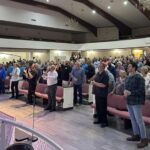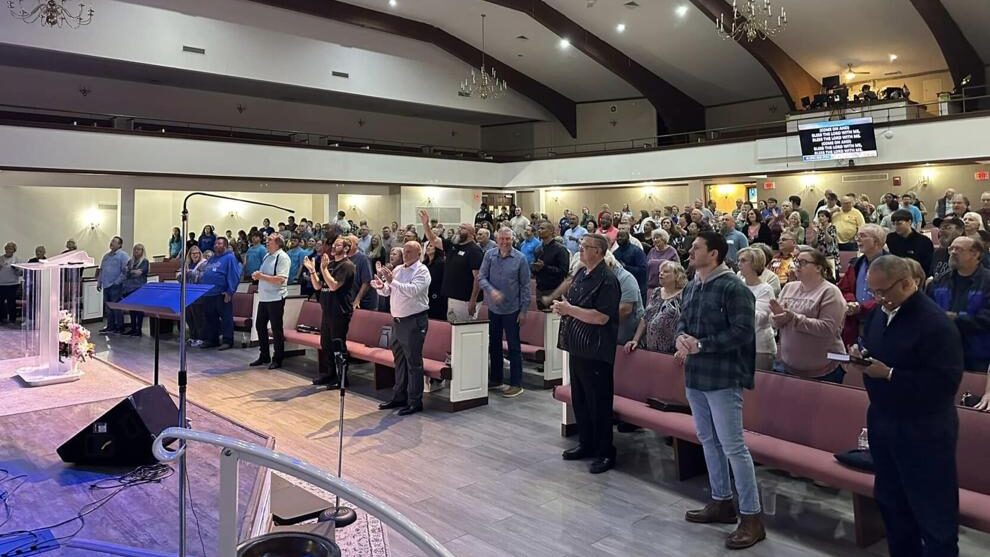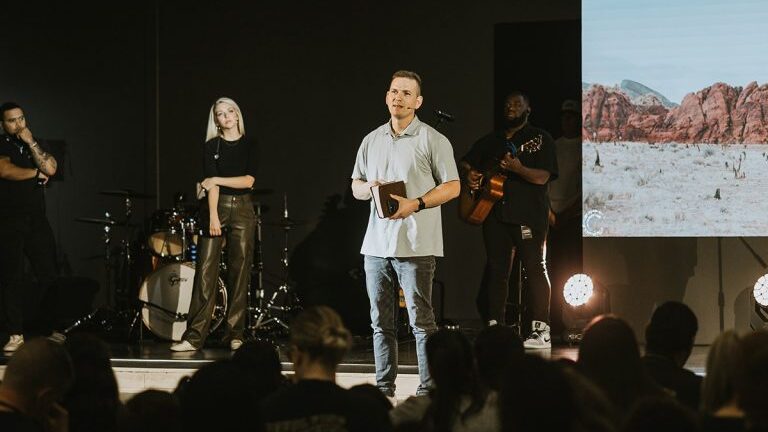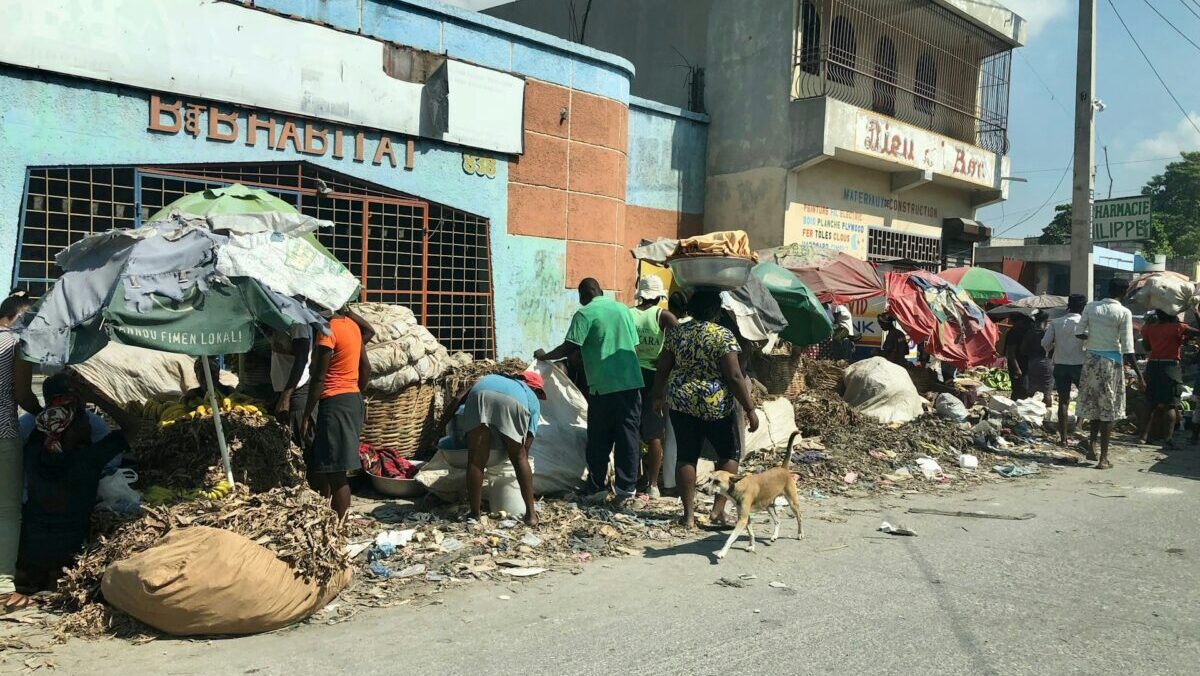Farrah Lane was at the skating rink with her three daughters the day she got a phone call from her obstetrician that changed their world.
“He said, ‘Your child has very high indicators for Trisomy 18, and a child with Trisomy 18 usually doesn’t make it out of the womb,’” Farrah said.
She heard him say next that even if the baby was born, Trisomy 18 — a condition that causes severe developmental delays due to an extra chromosome 18 — made the baby “incompatible with life.”
‘Not an option’
She asked him what her child’s gender was, and he told her it was a girl — but that Farrah should consider ending her pregnancy.
“I asked how I could help [the baby], and it sounded like he was saying termination was the only option,” Farrah said. “I said, ‘Well, that’s just not an option.’”
All of it was a lot to take in — the news itself and the doctor’s guidance.
Farrah’s husband, Tait, said hearing their daughter’s diagnosis was difficult. “This kind of news has a tremendous impact on you,” he said. “But we know that our will is not always God’s will. He made her this way for a reason but also gave us to her for a reason. We were going to see that through.”
The Lanes already had three healthy children, and this child was no different to them. If the baby had Trisomy 18, the Lanes were going to do everything they could to give her a chance at life.
“I found out that 90% of babies with Trisomy 18 need heart care right off the bat, and if the defect can be repaired, then it gives them a chance,” Farrah said.
But as the Lanes started looking into that kind of heart repair surgery, they kept hitting the same surprising wall over and over.
“I spoke with surgeons here in our area and all over the United States, and they all said the same thing — that we would just have to wait and see how the baby did,” said Farrah, who grew up in Heflin, Alabama, and now lives outside Atlanta.
She and Tait began to see a pattern — surgeons would tell them they would have to wait several months to see if surgery was a good option.
But as the couple researched, they heard stories of other babies who waited for just that — and during the waiting time, their hearts and lungs had become too damaged for surgery to help.
It was an impossible situation, Farrah said. “They really write these babies off.”
But then she heard of Dr. James Hammel, a surgeon in Omaha, Nebraska, who is known for his willingness to operate on newborns with Trisomy 18. As they prayed about what to do next, they felt continued confirmation that they should go see him.
‘No matter what’
“We were always trying to pray for answers. We knew it was going to be hard, but we knew we had to do everything we could for her, no matter what,” Farrah said.
They made the trip to Omaha at 22 weeks gestational age, consulted with Hammel and got a birth plan together.
They came back home with a heart monitor and checked for the baby’s heartbeat every night, knowing they could lose her at any moment.
But the heartbeat stayed strong. At 37 weeks, Farrah went to the hospital so he could monitor the situation. And on June 6, 2019, Sarah Catherine was born weighing 4 pounds, 8 ounces.
Rallied to pray
Twenty-eight hours later, she had surgery to close the neural tube defect from her spina bifida, a condition that 6% of babies with Trisomy 18 have.
Then when she was six days old, she had her first heart repair surgery and though things initially went well, she coded after the procedure.
People all over rallied to pray for Sarah Catherine, and she recovered — another miracle.
She spent 60 days in intensive care; then the whole family loaded up and drove the 1,000 miles home with a baby on oxygen.
To the Lanes, that trip was a miracle too — most babies with Trisomy 18 have to be taken home by medical transport.
In fact, it has been miracles all around for the family.
The first doctors they’d seen had given them extremely poor odds that their daughter would be born alive, and if she was born alive, then a 1-in-10 chance she would make it to her first birthday.
Sarah Catherine did both.
“This kid is amazing,” Farrah said. “It boggles the mind that people want to give up on these babies.”
The youngest Lane has had two more surgeries since the two she had just after birth. She is learning to communicate more all the time and shows more of her personality every day, Farrah said.
The other three Lane daughters — Claudia, Caroline and Charlotte — are thriving too. They love their sister well, bringing her play food for her place at the table when they have meals.
“They can’t stand for her to not have food at her place when they do,” Farrah said, noting Sarah Catherine has a feeding tube.
They also say they want to be NICU nurses, Farrah said.
‘Enriched their lives’
They set up NICU suites with their dolls, make tubes from yarn and O2 tanks from construction paper and call the doctor on their “phones” to see if they can bring their babies in for a heart repair.
“Our girls show tremendous compassion and love,” Farrah said. “Sarah Catherine has shaped their lives and enriched their lives.”
Through Facebook connections, the family also has gotten to connect with, minister to and encourage a whole community of Trisomy 18 parents scattered all over the world.
“That’s been an unexpected blessing,” Farrah said. “We’ve been able to share in the joys and the heartaches with them.”
Tait said since day one, they’ve seen Sarah Catherine’s life as a God-given opportunity as well as a miracle.
“The value is not in what she can do or what she can become but in that she is His creation, created in His image,” he said.
“This is her story. We’re just along for the ride.”
To learn more about Sarah Catherine’s story, visit the Lanes’ blog at carryingsarahcatherine.wordpress.com.








